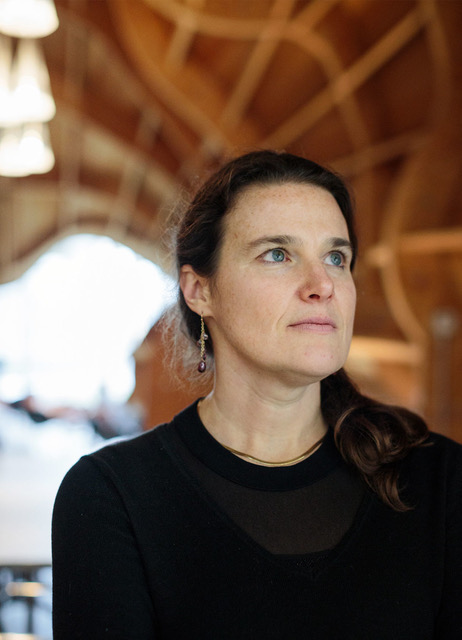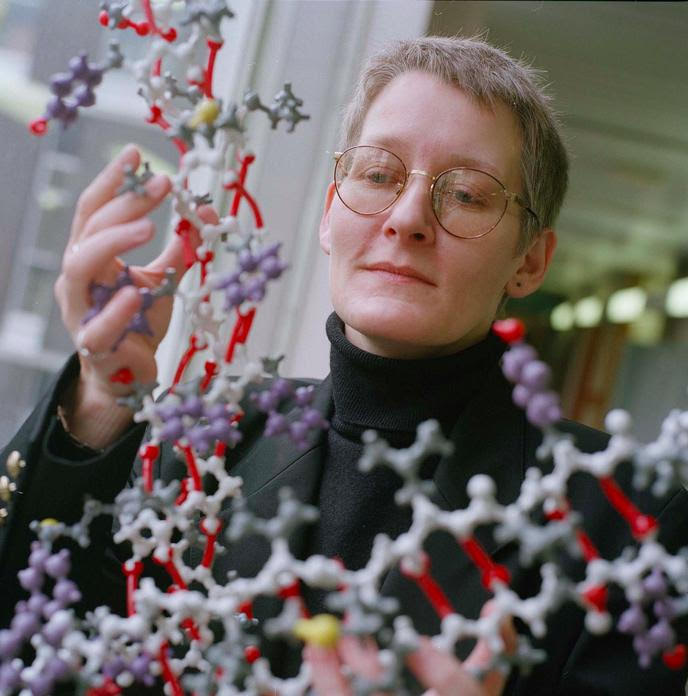 |
|||||||||||
| ISCB Announces 2021 Award Recipients Peer Bork, Barbara Engelhardt, Ben Raphael, Teresa Attwood! |
|||||||||||
| The International Society of Computational Biology (ISCB) is pleased to announce the winners of the 2021 Accomplishments by a Senior Scientist Award, Overton Prize, Innovator Award, and Outstanding Contributions to ISCB Award. Peer Bork, EMBL Heidelberg, is the winner of the Accomplishments by a Senior Scientist Award. Barbara Engelhardt, Princeton University, is the Overton Prize winner. Ben Raphael, Princeton University, is the winner of the ISCB Innovator Award. Teresa Attwood, Manchester University, has been selected as the winner of the Outstanding Contributions to ISCB Award. "As chair of the Awards Selection Committee it gives me great pleasure to convey my heart-felt congratulations to this year’s awardees. Our community, as represented by the committee, admires these individuals’ outstanding achievements in research, training, and outreach." - Martin Vingron, Chair, ISCB Awards Committee |
|||||||||||
 |
Peer Bork, PhD |
||||||||||
| The Accomplishments by a Senior Scientist Award recognizes a member of the computational biology community who is more than two decades post-degree and has made major contributions to the field of computational biology. Peer Bork is being honored as the 2021 recipient of this award. Peer Bork has been at EMBL since 1991, head of Units since 2001; the current strategic head of Bioinformatics at EMBL Heidelberg since 2011 and an ERC Advanced Investigator. Bork received his PhD in biochemistry in 1990 and his habilitation in theoretical biophysics in 1995. His group, the Bork group, focus on gaining insights into the functioning of biological systems and their evolution by comparative analysis and integration of complex molecular data. Together with other groups at EMBL, they hope to establish interaction maps between chemical compounds and microbes, individually and in communities using advanced multi-omics approaches, with application for human (e.g. individualized diet) or planetary health (e.g. pesticide response biomarkers). Peer Bork has made tremendous contributions to bioinformatics on a plethora of fronts within the field. This includes his early work on protein domains (leading to the SMART database), genome analysis of higher eukaryotes (leading to authorships on the human, mouse, and rat genome papers), work on one of the most used methods for analysis of mutation data (PolyPhen), large-scale phylogeny (leading to iToL), inventing several of the method for inferring gene/protein networks (leading to the STRING database), analysis of drugs and adverse reactions (leading to STITCH and SIDER) and most recently pioneering microbiome research. In addition to the research as evidenced in his impressive list of over 590 publications, he has had immense impact also as a mentor. The majority of his many postdocs over the years have moved on to become successful group leaders themselves. |
|||||||||||
|
|||||||||||
|
|||||||||||
|
|||||||||||
| The Outstanding Contributions to ISCB Award recognizes an ISCB member for outstanding service contributions toward the betterment of ISCB through exemplary leadership, education, and service. The 2021 recipient of the Outstanding Contributions to ISCB Award is Teresa Attwood. Attwood completed her PhD in Biophysics in just two years at the University of Leeds. She was subsequently awarded a prestigious Royal Society University Research Fellowship, which she held from 1993-2002. During the decade from 1996, she was also a visiting fellow at the European Bioinformatics Institute (EMBL-EBI). She gained a Chair in Bioinformatics in 2001, and is now Professor emerita of Bioinformatics in the School of Computer Science at The University of Manchester. A visionary within the field, she saw early on the power of bioinformatics education. She co-authored (with David Parry-Smith) the first book in bioinformatics, which became a reference in Universities worldwide, and was translated into many different languages; she went on to co-author two further books: the first with Paul Higgs, the second with Steve Pettifer and Dave Thorne. Teresa was quick to recognize that ISCB was a key global player strongly promoting bioinformatics education. Attwood has been a champion of the bioinformatics education community, where she has been instrumental in putting in place ISCB platforms that allow the education community to highlight their work and that raise the awareness of ISCB as a leader in bioinformatics education globally. A longstanding and involved ISCB member, Attwood continued to further bioinformatics education on behalf of the global bioinformatics community and ISCB through many years of service. In 2001, she joined Phil Bourne’s ISCB Education Working Group to define the topic areas in a complete bioinformatics curriculum and identify the available learning resources. This group was the precursor of the creation of the ISCB Education Committee (2002). Attwood was instrumental in launching the Global Organization for Bioinformatics Learning, Education and Training (GOBLET, 2012) as a network of global training organizations and individuals, and was its Chair for the first 7 years. Understanding the need to link GOBLET with ISCB, Terri worked with Fran Lewitter on the ISCB Education Committee Leadership Task Force (Summer 2016) to align the missions of GOBLET with those of ISCB and the emerging Education COSI, thereby ensuring the two organizations work in harmony towards their respective goals. Teresa Attwood is being recognized for her many years of significant contributions to both ISCB and the broad bioinformatics and bio-curation communities, including as creator of the PRINTS protein fingerprint database, and co-founder of the InterPro protein family database with Amos Bairoch, Rolf Apweiler and Richard Durbin. |
|||||||||||
| ISCB will present the Accomplishments by a Senior Scientist Award, Overton Prize, Innovator Award and Outstanding Contributions to ISCB Award, at ISMB/ECCB 2021 (https://www.iscb.org/ismbeccb2021), which will take place in virtually, July 26-30, 2021. Full bibliographical articles profiling the award recipients will be available in the ISMB/ECCB 2021 focus issue of the ISCB newsletter later this year, as well as the ISCB Society Pages in OUP Bioinformatics, and F1000 Research ISCB Community Journal. |
|||||||||||
|
|
|||||||||||






